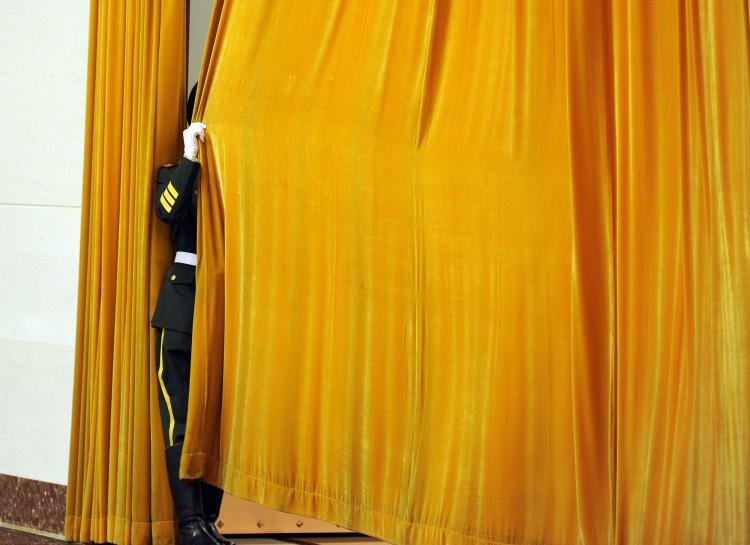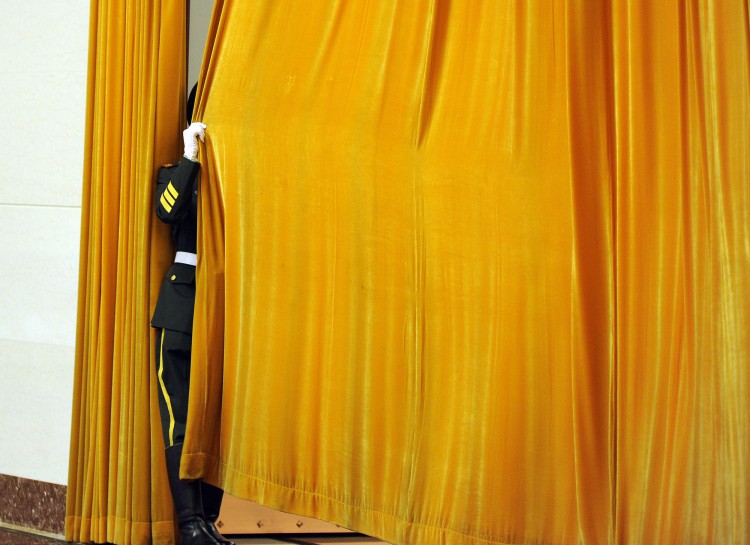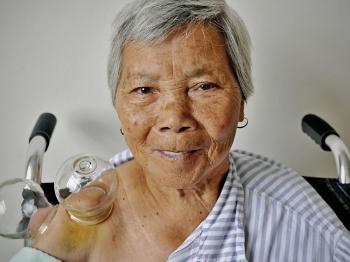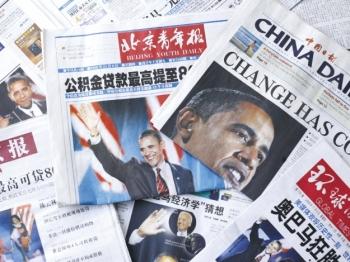China’s military has quietly reassigned a large number of high-ranking officers and removed most of supporters of Bo Xilai—the now deposed official who was being groomed by the Chinese Communist Party’s (CCP) most ruthless faction to become the next Party leader—in two key regions. Within just one month, there have been 14 transfers of generals ranking at the level of Military Region.
According to several published reports collected by Southern Metropolis Daily, since July, China’s military has moved around a large number of senior generals, including generals in the Navy, Air Force, Lanzhou Military Region, Guangzhou Military Region, Chengdu Military Region, Hong Kong Garrison, General Logistics Department, and Armed Police. The South China Sea and North Sea Fleets have also changed their chief commanders. This is the largest reshuffle of top Chinese military officers since the June 4, 1989 Tiananmen Square student massacre.
The most notable adjustments have taken place in the Lanzhou and Chengdu Military Regions. Most generals supportive of Bo Xilai and former CCP leader Jiang Zemin have been removed from their positions since they were linked to an alleged coup plotted by Bo Xilai and Zhou Yongkang, both members of the Jiang Zemin faction. The three were united in a plan to seize power at the top of the Communist Party in order to cover for their crimes in persecuting Falun Gong, a Chinese spiritual practice, according to insiders and the analysis of experts.
But according to a high ranking Beijing official, Hu Jintao, in order to remain as the Party’s Central Military Commission (CMC) chairman, and maintain some hold on power after handing over his Party leader post, doesn’t want to make too many enemies. Hu is using “soft treatment” in dealing with Bo and Zhou to leave their supporters “a way out” and to try to minimize the impact of the political tsunami brought on by the pair, the official told New Epoch magazine on condition of anonymity.
According to reports, the two vice-chairmen and the eight members of the CMC all signed a petition asking Hu to remain as chairman of the CMC. Obviously, Hu’s compromise has brought benefits to himself. Those high-ranking officials involved in the Bo and Zhou incident have already changed their stance, and Bo and Zhou have no influence now even though Zhou still remains in his current Party position.
Breaking up the PLAC
Recently an official message further confirmed Hu’s and Wen’s “outside loose and inside tight” policy towards Zhou. According to state media Xinhua News, from the beginning of August, provincial and autonomous regions’ police chief positions will be taken over by transferred officials from other provinces. This is another major initiative—following the June 26-July 31 intensive rotational training of police chiefs from more than 1,400 cities and counties—to weaken the impact of the Gestapo-like Political and Legislative Affairs Committee (PLAC), and to break up and reshuffle the PLAC.
Additionally, local Party committees were due for reelection in early July. There were 23 new provincial PLAC secretaries who were not local police chiefs; instead the positions were filled by officials without any PLAC background. Previously the PLAC secretary position was always held by the local police chief, and its authority often surpassed that of other law-enforcement agencies. The PLAC thus formed a second power center in China controlled by Jiang Zemin and Zhou Yongkang.
The intention of Hu’s series of actions is to weaken the second power center and second armed forces, and to avoid the renewed possibility of a coup.
Outcome of Reshuffle
1. In order to stabilize power, anyone who publicly declared loyalty to Hu Jintao, even though he had some minor connection to Bo, would have his future secured—at least for now. As long as he has cut ties with Bo, Hu uses the policy of “ignoring the past.” Of course, the purpose of this adjustment is to eliminate members of the Jiang faction, who were removed or at least not promoted this time.
2. Although Hu is to remain as chairman of the CMC, Xi Jinping will take the top post soon, and Hu has to promote Xi’s proposed personnel. Therefore, in this top military brass reshuffle, there has been a number of positive outcomes for Xi. The most obvious being the rise of the “princelings,” which is the privileged group of descendants of past CCP leaders, including Xi himself.
3. On the surface, Hu has trivialized the Bo Xilai scandal, reducing it from a planned political coup to a criminal case in order to safeguard the Party’s rule. But in fact, Hu has been vigorously eradicating the core elements connected to Zhou Yongkang. Changes, rotational training, and promotions within the PLAC and Armed Police are all about weakening Zhou Yongkang who represents the old forces of Jiang Zemin and Zeng Qinghong.
4. On the surface, the CCP can still maintain power for some time, and the 18th Party Congress may still be held as scheduled. But a discerning eye can see that the more the CCP shouts, “The Party has absolute leadership over the Armed Forces,” the more unstable the military is.
5. The CCP is reshuffling generals on such a large scale. It’s for protecting its own power and preventing the military from taking part in a political coup. But at the same time, the frequent relocation of army generals will also weaken the military’s fighting power.
6. From this round of reassignments, one can see that the CCP is putting hardliners in the South China Sea, thus there could be localized military conflicts there. But, the CCP doesn’t want to fight a major battle. The CCP’s national defense policy has been defensive in nature, because it knows that its military power really cannot match that of other major powers. Unless it uses atomic weapons as a last resort, China cannot win conventional weapons wars. In the South China Sea, they only talk big, but act little.
Editor’s Note: When Chongqing’s former top cop, Wang Lijun, fled for his life to the U.S. Consulate in Chengdu on Feb. 6, he set in motion a political storm that has not subsided. The battle behind the scenes turns on what stance officials take toward the persecution of Falun Gong. The faction with bloody hands—the officials former CCP head Jiang Zemin promoted in order to carry out the persecution—is seeking to avoid accountability for their crimes and to continue the campaign. Other officials are refusing any longer to participate in the persecution. Events present a clear choice to the officials and citizens of China, as well as people around the world: either support or oppose the persecution of Falun Gong. History will record the choice each person makes.
Read the original Chinese article.
The Epoch Times publishes in 35 countries and in 19 languages. Subscribe to our e-newsletter.
Click www.ept.ms/ccp-crisis to read about the most recent developments in the ongoing crisis within the Chinese communist regime. In this special topic, we provide readers with the necessary context to understand the situation. Get the RSS feed. Get the new interactive Timeline of Events. Who are the Major Players? ![]()






